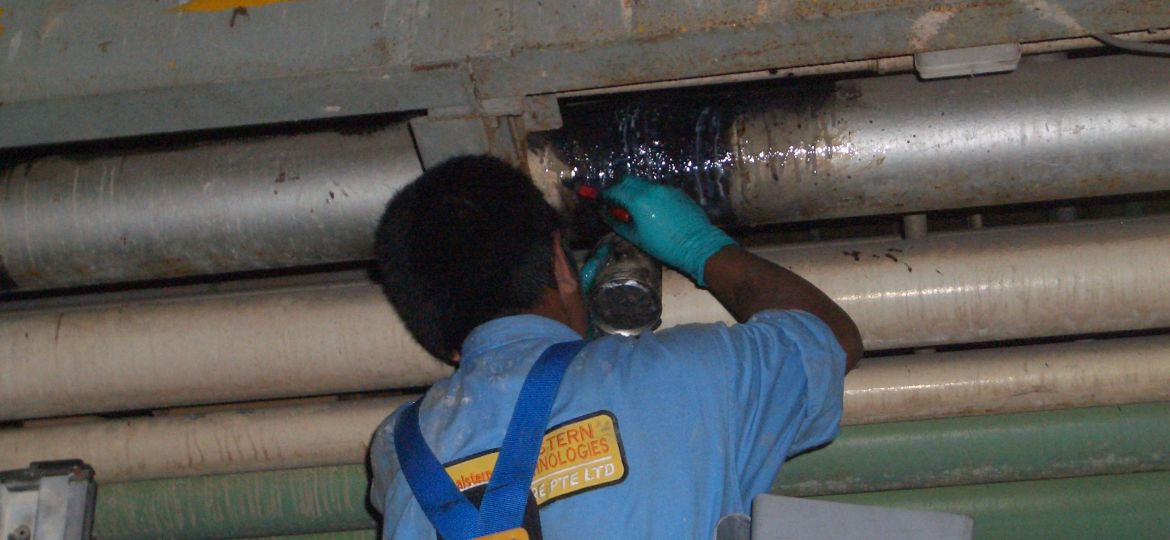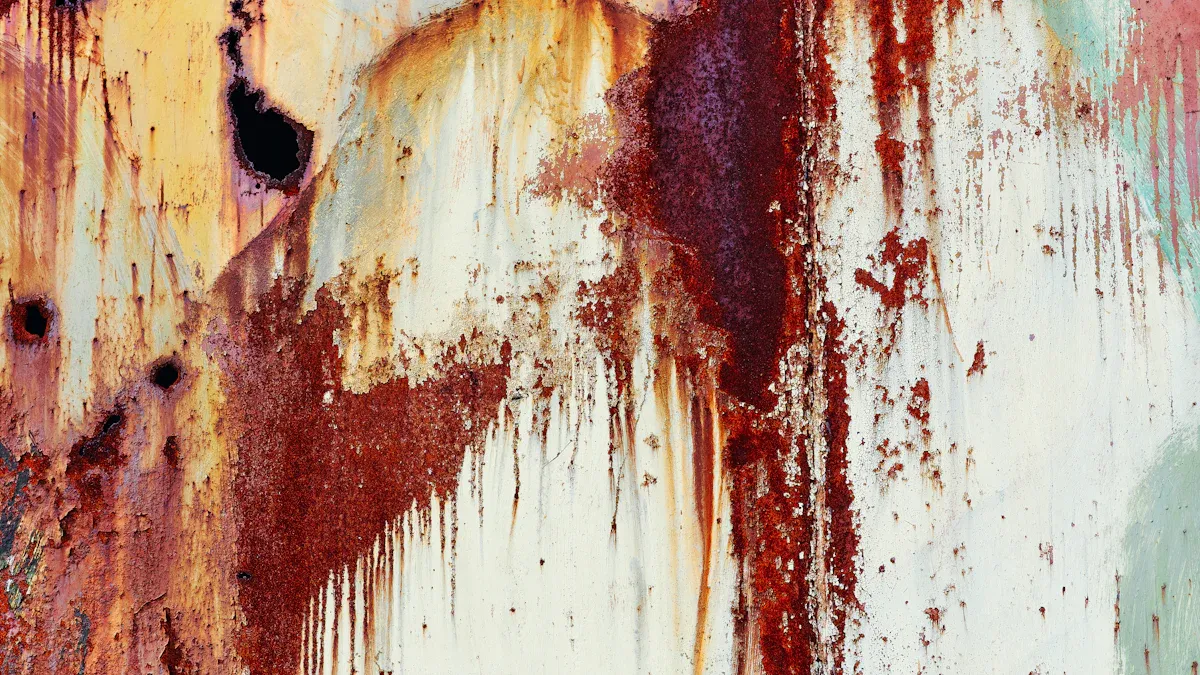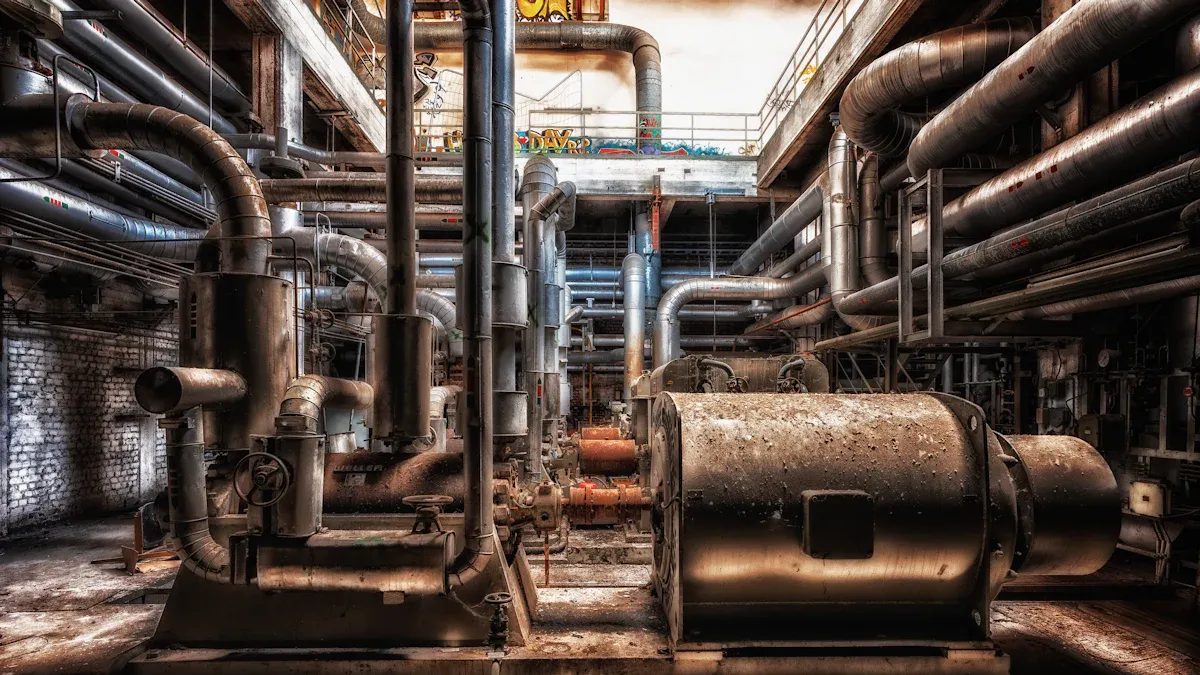
You can extend the life of your equipment by using anti rust paint. This type of paint creates a strong shield that blocks water and air. Corrosion cannot reach the metal when you apply the correct paint. You spend less time on maintenance and repairs. Your equipment lasts longer, and you save money over time. Paint also helps your machines work safely and stay in good shape. Choose the right paint to protect your valuable assets.
Anti Rust Paint Protection

Barrier Against Corrosion
It is important to keep your equipment safe from rust. Anti-rust paint gives a strong shield. This paint covers metal and blocks water, air, and chemicals. When you use paint, you stop rust before it starts. The paint makes a shield that keeps out bad things. This protection helps machines last longer and work better.
Tip: Always look for chips or cracks in the paint. Even a small crack can let in water and start rust.
Paint works best on clean, dry surfaces. You should read the instructions on the paint can. Some paints need more than one coat to protect well. You can use anti rust paint on many machines, pipes, and tools.
Inhibitive & Sacrificial Coatings
There are two main types of anti-corrosion coatings. Inhibitive coatings stop rust with a chemical barrier. These paints have special chemicals that slow down rust. Sacrificial coatings work in another way. They use a metal layer, like zinc, that rusts first. This layer protects your equipment by taking the damage.
Here is a simple table to help you compare:
| Type | How It Works | Best Use |
|---|---|---|
| Inhibitive Coating | Stops corrosion with chemicals | Indoor equipment |
| Sacrificial Coating | Uses metal layer to take corrosion | Outdoor or harsh settings |
Pick the right coating for your needs. Inhibitive coatings are good for machines inside. Sacrificial coatings protect equipment outside or in tough places.
Epoxy & Chemical Coatings
Epoxy paint gives strong protection from rust. This paint sticks to metal and makes a hard shell. You can use epoxy paint on tanks, pipes, and big machines. Chemical coatings also help stop rust and other damage. These paints resist acids, oils, and salt. You get stronger machines and less fixing.
When you use these paints, your equipment lasts longer. You also save money on repairs. Epoxy and chemical coatings help machines run safely and smoothly.
- Epoxy paint: Best for tough jobs and wet places.
- Chemical paint: Good for areas with lots of chemicals or salt.
Always follow the steps for painting. Clean the surface, use the right tools, and let each coat dry. This helps you get the best results and the longest protection.
Industrial Corrosion Protection Benefits

Increased Equipment Durability
You want your industrial machines to last as long as possible. When you use the right paint and coatings, you add a strong layer of protection to your equipment surfaces. This layer keeps out water, air, and chemicals that cause rust. You help your machines fight off damage and wear. As a result, you see extended equipment life and better durability.
Note: A single layer of anti rust paint can make a big difference in how long your machines stay in good shape.
Paint acts as a shield. It covers every part of your equipment and blocks harmful elements. You get more years out of your machines. You also avoid early breakdowns. This means you do not have to replace your equipment as often.
Lower Maintenance Costs
Industrial settings can be tough on machines. If you skip proper coating, you may face high maintenance bills. Paint and coatings help you save money by stopping rust before it starts. You spend less time and money fixing problems.
Here is a quick look at how paint helps lower costs:
| Benefit | How Paint Helps |
|---|---|
| Fewer Repairs | Stops rust and surface damage |
| Less Downtime | Machines run longer |
| Lower Labor Costs | Fewer fixes needed |
You keep your machines running and avoid costly repairs. You also reduce the need for extra parts and labor. This makes your industrial operation more efficient.
Enhanced Safety & Efficiency
When you protect your equipment with the right coating, you make your workplace safer. Rust can weaken metal and cause parts to fail. Paint and coatings keep your machines strong and reliable. You lower the risk of accidents and injuries.\
Tip: Regularly check your coatings for chips or wear. Quick touch-ups keep your protection strong.
A well-coated machine works better and uses less energy. You get more work done with less effort. You also improve the resale value of your equipment. Buyers want machines that look good and last long. Good paint and coatings show you take care of your assets.
You help your business by choosing the right paint and keeping up with maintenance. This leads to longer lifespan, better efficiency, and higher safety standards in your industrial setting.
Choosing & Applying Protection
Selecting the Right Paint
You must pick the best industrial paint for your machines. First, look at what your equipment is made of and where it is used. Some places have a lot of water in the air or strong chemicals. Other places are outside or have heavy use. There are many kinds of industrial paint. You should match the paint to your needs. If you want your machines to last, choose paint that stops rust and can handle tough places. Experts say you should check if the paint works well with your equipment. When you pick the right industrial coating, your machines work better and last longer.
Tip: Ask your supplier which industrial paint gives the best protection for your machines.
Surface Preparation Steps
Before painting, you need to get your equipment ready. Clean off dirt, oil, and old paint. For hard rust, use wire brushes or sandblasting. Make sure the surface is dry. A clean surface helps the industrial coating stick and protect better. When you do these steps, your machines stay safe and last longer.
Surface Prep Checklist:
- Take off loose rust and old paint.
- Wash the equipment with an industrial cleaner.
- Dry every part.
- Check for damage before using industrial paint.
Application Techniques
You can use brushes, rollers, or sprayers to put on industrial paint. Each way works best for different jobs. Sprayers are good for big areas. Brushes are best for small parts. Rollers help with flat spots. Use smooth strokes and follow the instructions for each industrial coating. Put on more than one coat for better protection. Let each coat dry before adding another. Careful painting helps your machines last longer and work better.
| Method | Best Use | Performance Benefit |
|---|---|---|
| Brush | Small parts, details | Precise coating |
| Roller | Flat surfaces | Smooth finish |
| Sprayer | Large equipment | Fast, even coverage |
Maintenance Strategies
Keep your machines working well by checking them often. Look at the coatings for chips or worn spots. Fix any damage with more industrial paint. Check your machines on a schedule to find problems early. Good care makes your industrial coating last longer and keeps your equipment strong. You get better protection and your machines work well for a long time.
Note: Regular industrial maintenance saves money and keeps your machines safe.
You can help your industrial equipment last longer with anti rust paint. The paint covers your equipment and keeps rust away. You should pick the right paint for your equipment. Clean your equipment before you start painting. Check your equipment often to find rust early. Fix problems fast so your equipment stays safe. These steps make your equipment strong and safe. If you do these things, your equipment will last many years.
- Choose the right paint for your equipment.
- Clean and check your equipment often.
- Stop rust before it harms your equipment.

